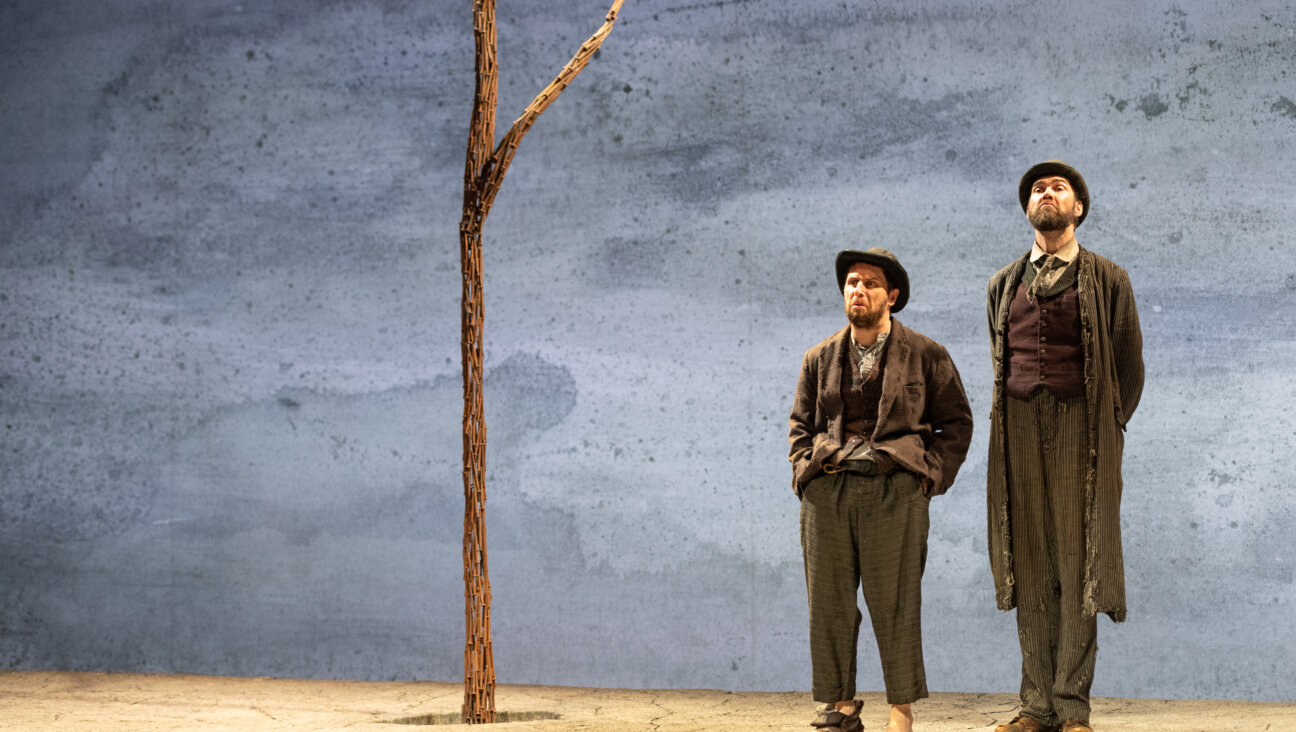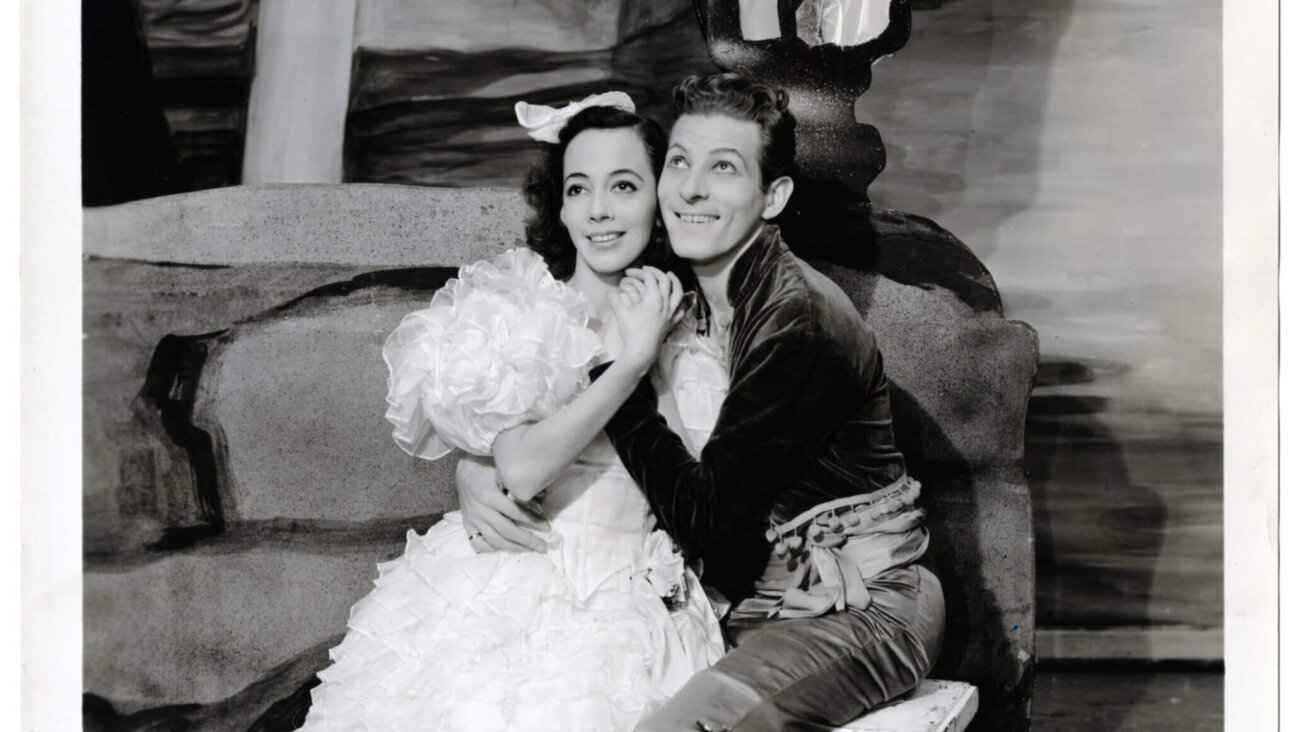Baghdad Blues
This month, Free Press publishes “Last Days in Babylon: The History of a Family, the Story of a Nation,” by British journalist Marina Benjamin. In “Last Days in Babylon,” Benjamin follows the decline and near destruction of a once-thriving Iraqi Jewish community through the story of her grandmother, the daughter of a proud Iraqi family forced to leave its home as anti-Zionist fueled anti-Jewish feelings among their countrymen. In advance of the publication, Benjamin discussed the importance of tracing one’s roots, her family’s reaction to the book and the twilight of Iraqi Jewry with the Forward’s Ariel Beery.
Q: How would you compare your interest in returning to the land in which your forbears lived to the interest of Ashkenazic Jews who remain fascinated with the culture of Europe? Do you feel a similarity or a distance from those Jews who take heritage trips to Poland and Russia?
A: I think there are definitely parallels: Your parents inhabit a world that has disappeared, that won’t be re-created and can’t be re-created, and all you can do is go back and look for hints and traces. Going back to Poland and to Russia and looking for the shtetl communities is very similar to what I was doing. You are looking at a generation that is fast fading out of the present and into history, and there are very few people around who have living memories of the lives we are trying to conjure before the 1930s, for example, or the 1920s or before the Russian revolution.
One of the things that appealed to me about using my grandmother as the central character of the book is that I’m fascinated with 20th-century life spans that are now coming to an end. My goodness, my grandmother was born during the Ottoman Empire!
It fascinated me that that was her understanding, and that was what she grew up with, and then of course the British invasion of Iraq in 1917 changed all that, and was the first experience in the Middle East of colonialism, as well. I don’t want to belabor the point, but the lessons that are to be drawn from the occupation and the subsequent management were a very potent model for the present occupation: Many of the same mistakes have been made, good will not withstanding.
Q: Considering how much of your family’s personal life was detailed, what was your family’s reaction to the book?
A: My mother had a very emotional reaction — and I was glad that she had an emotional reaction, because one of the challenges I set is that I wanted to get the reader invested in the idea of this community and what it stood for, and how it operated, and its closeness and its humor, and all its peccadilloes. I had to do this on the basis of interviews and on the basis of customs I had inherited secondhand, and obviously there were threads of continuity between the culture that existed there among the Jews in Iraq and the one that the Diaspora has maintained, lovingly. But it is still secondhand for me, so the challenge was to give it something that can resonate emotionally with an Iraqi Jew. So I was very pleased that it moved her.
There were a couple of things that she was petitioning me to take out of the book, but I insisted on leaving in. When I described my grandmother’s loss of virginity, it was simply too close to the bone to her: The Iraqi community is very conservative, and I think that no Iraqi Jew from that conservative community would have ever written a book like this. My husband is an American WASP, and I hadinherited a certain freedom once I left the community — a freedom to move and a freedom to look back and a freedom to disclose those things that that you wouldn’t if you remain within the community. [And] I didn’t want to write a hagiography. I wanted to try and capture an era that has disappeared and the experiences of the people who have lived through it.
Q: You write about the last remaining Jews of Baghdad and, in doing so, declare that millennia-old Jewish life there has come to an end. Those Jews who remained behind, you write, chose to be Iraqis first and Jews second. Would there be inherent worth in the reconstitution of Jewish life in Iraq?
A: It is a question that is hard for me to answer, as someone who was not born in Iraq. But I know many Iraqis who would certainly entertain going back, were such a thing possible, and who believe Jewish life should be resuscitated. As I write in the book, this is a place of ancient importance to the Jews. In fact, one of the responses to the Balfour Declaration was that Iraqis couldn’t quite understand why Palestine was being chosen as the national home. They said: “Well, why can’t Mesopotamia be the national home? We have the history! Abraham was born here, Daniel was here, Ezra was here.” You can’t accuse the Iraqi Jews of never being proud of their heritage.
Q: When you think back on your family’s history, what is the story or heirloom you are most proud of? What piece of information would you like your children’s children to know?
A: In some ways it’s the thing we don’t have — the box of dental instruments that my grandmother had to give away, that belonged to her father-in-law. And partly it is because she had to give it away that I want them back. The Jews who left Iraq left as paupers, they left as refugees, they left with subterfuge, they couldn’t keep the heirlooms with them, they couldn’t keep those things that reminded them of a very proud heritage, of their education, of their cultural standing, of the very idea of continuity — that such a set of precious things as dental instruments, tools of a trade, would be passed on from father to son but not anymore. That is a very emotionally charged thing for me. The fact that my grandmother sat in her transition camp, in her tent in Nes Ziona, mourning aloud for the china that she had to give away. Those things move me. And especially in a country like England where I live, where heritage is everything, and I can go to my friends houses and they’ll have tea sets and pieces of china from the Victorian Era that had been handed down by their great grandparents, and in my parents’ house everything is brand new. The past is something that is cherished in memory, and its material manifestations have just evaporated. To actually be able to get something back that had been lost would be nice.

I hope you appreciated this article. Before you go, I’d like to ask you to please support the Forward’s award-winning journalism this Passover.
In this age of misinformation, our work is needed like never before. We report on the news that matters most to American Jews, driven by truth, not ideology.
At a time when newsrooms are closing or cutting back, the Forward has removed its paywall. That means for the first time in our 126-year history, Forward journalism is free to everyone, everywhere. With an ongoing war, rising antisemitism, and a flood of disinformation that may affect the upcoming election, we believe that free and open access to Jewish journalism is imperative.
Readers like you make it all possible. Right now, we’re in the middle of our Passover Pledge Drive and we need 500 people to step up and make a gift to sustain our trustworthy, independent journalism.
Make a gift of any size and become a Forward member today. You’ll support our mission to tell the American Jewish story fully and fairly.
— Rachel Fishman Feddersen, Publisher and CEO
Join our mission to tell the Jewish story fully and fairly.
Our Goal: 500 gifts during our Passover Pledge Drive!
























